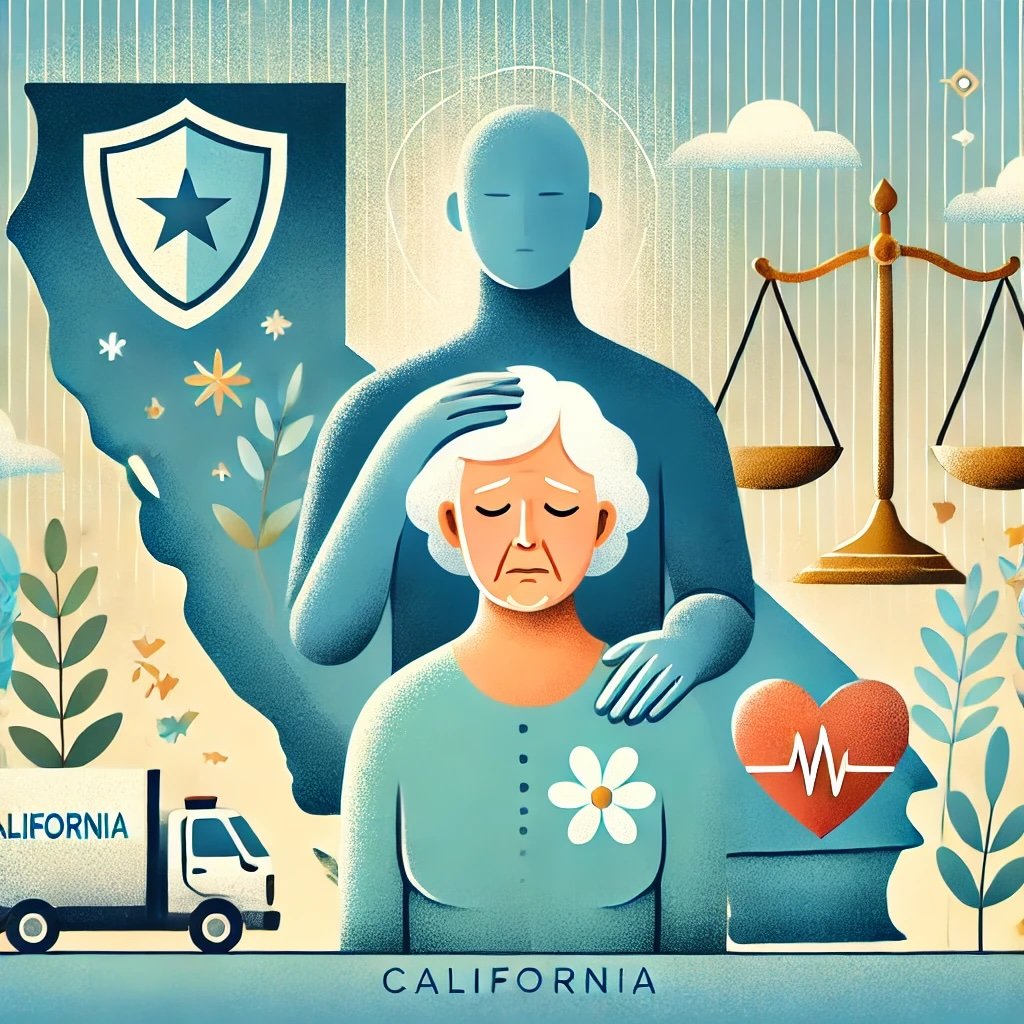PROTECTING CALIFORNIA SENIORS — Guide to Identifying and Preventing Elder Abuse
In California, where the senior population is growing rapidly, understanding how to identify and address elder abuse is more critical than ever.
What Constitutes Elder Abuse in California?
Under California law, elder abuse can be both criminal and civil. It encompasses any behavior that results in harm to a person aged 60 or older. These are the main categories of elder abuse:
Physical Abuse: Inflicting physical pain or injury, using restraints improperly, or committing sexual assault.
Financial Abuse: Illegally or unethically using an elder’s funds, property, or assets for personal gain. This can include fraud, coercion, or misuse of legal authority, such as powers of attorney.
Neglect: Failing to provide adequate care, including food, medical attention, or a safe living environment.
Emotional or Psychological Abuse: Inflicting fear, distress, or confusion through threats, humiliation, or isolation.
Abandonment: Deserting an elder in their time of need, often leaving them without basic resources or care.
Isolation: Preventing an elder from having contact with family, friends, or community resources.
Abduction: Removing an elder from California without proper authorization or consent.
Undue Influence: Exploiting a senior’s trust or mental state to gain control over their assets or decisions.
These acts not only undermine a senior’s dignity and safety but are violations of California’s Penal Code Section 368 and Welfare & Institutions Code Section 15610.
Spotting the Warning Signs
Elder abuse often goes unnoticed because victims may feel ashamed, scared, or unable to speak out. Look for these red flags:
Physical Indicators: Bruises, cuts, bedsores, unexplained injuries, or signs of malnutrition and dehydration.
Behavioral Changes: Increased withdrawal, fearfulness, agitation, or depression.
Financial Irregularities: Sudden changes in banking habits, missing belongings, or unauthorized transactions.
Neglect Indicators: Poor hygiene, unclean living conditions, or untreated medical issues.
It’s also important to assess the behavior of caregivers or family members. Signs of caregiver abuse include indifference, hostility, substance abuse, or limiting the elder’s interactions with others.
California Laws Protecting Elders
California has some of the strongest elder abuse laws in the country. Key legal protections include:
The Elder Abuse and Dependent Adult Civil Protection Act (EADACPA): This law allows victims and their families to pursue civil damages against perpetrators.
Penal Code Section 368: Imposes criminal penalties for anyone who physically, emotionally, or financially abuses a senior.
Welfare & Institutions Code Section 15610.30: Defines financial elder abuse and offers remedies such as asset recovery and restitution.
What to Do If You Suspect Elder Abuse
If you suspect elder abuse, immediate action is essential:
Document the Signs: Keep a record of injuries, behavioral changes, financial discrepancies, or any concerning interactions with caregivers.
Report to Authorities:
Contact Adult Protective Services (APS) in your county.
For abuse in care facilities, report to the Long-Term Care Ombudsman Program or California Department of Public Health.
Call 911 if the elder is in immediate danger.
Seek Legal Assistance: Consult with an elder abuse attorney to understand your options for protecting the victim and holding perpetrators accountable.
Preventing Elder Abuse: A Shared Responsibility
Prevention starts with awareness. Families, friends, and community members must:
Stay involved in the lives of their elderly loved ones.
Monitor financial accounts and legal documents.
Vet caregivers and care facilities thoroughly.
By staying vigilant, you can help protect seniors from harm and ensure they live with dignity and security.
Contact R23 Law for Expert Legal Guidance
If you or a loved one has experienced elder abuse, R23 Law’s California Senior Abuse Attorneys are here to help.
Contact us today for a free consultation. Our dedicated team is committed to protecting seniors and holding wrongdoers accountable.

